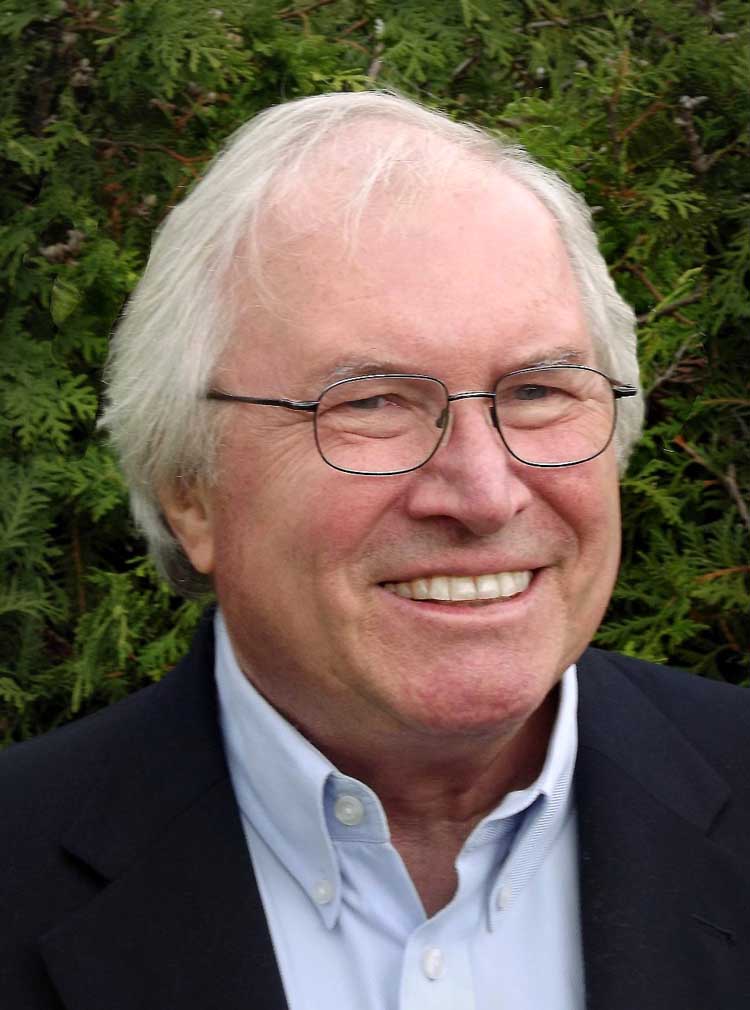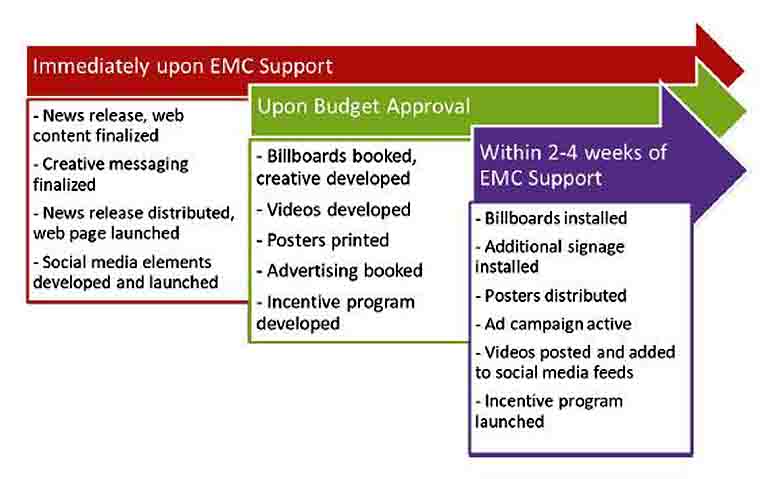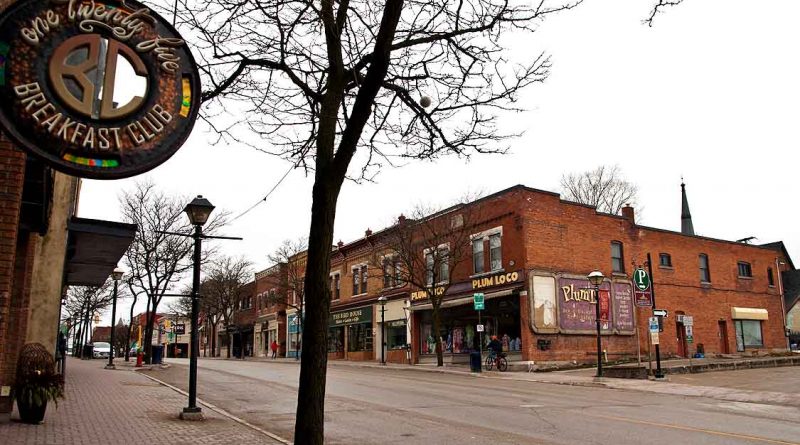City Plans For Economic Recovery
By John Swartz
The City of Orillia created a $1 million economic recovery fund last week. So far only $60,000 has been approved for a marketing campaign and an online shopping initiative.
This resulted from work being done by the economic recovery task force. The committee came to be when Mayor Steve Clarke and councillor Ted Emond realized the emergency management committee struck at the beginning of the emergency declaration was all about managing the pandemic and there was nothing in policy or previous experience set up to handle what happens after the emergency is over. Clarke asked Emond to chair a committee to start working on recovery and the committee was organized under the emergency management committee.
Ted Markle and Ron Shulman are members not tied to any group or business. The rest of the committee is made up of City Hall staffers Laura Thompson, Dan Landry, Michael Ladouceur; Alan Lafontaine and Nathan Brown of the chamber of commerce, Lisa Thompson-Roop of the DOMB, Wendy Timpano of the CDC, Kris Puhvel of Orillia & Lake Country Tourism, councillors Dave Campbell and Emond (chair).
City staff advised it was possible to set aside $1 million based on the state of the City’s resources and what was known about funding begin made available by higher levels of government. While the amount was put to council to approve May 11, subsequently more funding was announced by upper levels of government.

“As more and more senior level government support has been announced the potential of direct municipal financial help has diminished,” said Emond.
He sees uses of the funds to provide assistance to local agencies and organizations which will be supporting the community as it gets back on its feet. There may be a need as a central source to provide personal protection supplies to the community (buying power of one in bulk for distribution to area workplaces, etc.) and building consumer confidence.
The latter is where the marketing and online shopping initiatives come from. They are also investigating how to assist businesses on the brink because most business occurring in Orillia is done by small businesses. Many of them pay rent and have other ongoing expenses. Virtually all of them have had revenue cut off to some degree, which threatens the viability of continuing to operate.
Online Shopping Initiative
In consultation with area businesses, one of the things the economic recovery Task Force heard was about going online. In a digital world dominated by online giants it’s hard to get noticed when you are local. Doing business online looks easy, until one looks into it. There are so many options it’s hard to sort out which is best for each situation, which is likely why many have not put a priority on it – until now.
The online program is being designed to help create revenue streams for businesses, how to make a website, offer support, and provide consumers with education how to shop on line. Ted Markle helped present the report to council committee.
“If we want our businesses that have always been there for us, if we want them to be there in the future, we need to be there for them now,” said Markle. Helping businesses go online involves some expense, and can be relatively quickly achieved, and the committee thinks they can assemble a team of people and agencies (like possibly the CDC) to help negotiate the array of choices and sort out obstacles. It can be a matter of survival for many businesses.
“The opportunity for a quick recovery exists, but as the recession prolongs, the speed of that becomes more and more at risk,” said Markle in making his remarks to council when the report was delivered at committee. “We should really focus on making sure, as much as possible, businesses and organizations avoid bankruptcy through this.”
To arrive at a decision of where to start the committee held focus group video conferences to find out what the issues for the community are and what the community is looking for from City Hall. It’s not just retail businesses; they also spoke with those in hospitality, festival organizers, people working in the culture sector and non-profits.
“It wasn’t just focusing on business because we recognize those rich and important areas of our community are important and they suffer the same way as many of our businesses do and may need the assistance,” said Emond.
There are many well established companies facing problems, but new businesses have a different set of issues upsetting their plan to greater revenues and sustainability; often start ups plan for a period of low revenue, and it’s doubtful navigating disaster was part of the discussion.
“Broad-based, this will do it for everybody kind of solutions are probably not appropriate and we are going to have to figure ways to (tailor) solutions. One thing we’re finding is whether a business is in a start-up phase, is facing a very different challenge than a business that is sustainable, mature,” said Emond.
The main fund has a two-year time limit, and it’s likely further expenditures will only be approved in fits and starts because the biggest obstacle is figuring out how the City can use the money to shore things up. Municipalities are forbidden to make grants to individual businesses unless a business qualifies for a program any other business can take advantage of. As Emond noted, there are going to be some unique situations transcending a one size fits all program.
“Everybody’s coping in a different way with where we go, but we are looking to find those who are falling through cracks,” said Emond. “The challenge we have as a City, when we talk about specific help where there is a unique need, there is no mechanism to deliver it.”
Any previous grants to a business have been made through the Downtown Tomorrow Community Improvement Plan or through tax and development charge deferment for construction projects like the apartments on Barrie Road.
“The City is not directly responsible for the wellbeing of individual businesses. We try to create an environment,” said Mayor Steve Clarke.
Stay Safe – Shop Local
Another program rolling out soon is the Stay Safe – Shop Local marketing plan. The aim is to put that thought in front of as many people as possible on a regular basis for at least the next three months through advertising in local media and elsewhere. It’s is estimated $28,000 of the $60,000 will be used here.

“There were so many times when we knocked on the doors of businesses downtown or otherwise for their support for what we were doing and all of the businesses were so good supporting us and now it’s our turn to support them,” said councillor Pat Hehn.
The point is to constantly and consistently remind people they can find all they need at local businesses by looking online, or by phone – and to help residents find those businesses. There are many options to buy online, but big players like Amazon, which frankly will do just fine without revenue from Orillia shoppers, crowd out local business in search engine rankings.
Not part of the program, but an important decision to help businesses reopen; the province lifted restrictions on non-essential retail stores, but those opening have to have entrances facing a street and curb-side pickup is mandatory, so the City at the same time allowed free 30 minute street parking in the downtown to encourage people to shop local.
The City previously adopted some measures to ease immediate concerns. Property tax due dates were extended interest penalty free to the end of June (but residents who can afford to can always pay sooner) and parking downtown was made free as were transit rides.
“I can tell you anecdotally in conversations I have had in our community, not charging for transit has been a significant, positive, impact on the very low income people of our community who have historically found it difficult to pay for a transit fare, but now are finding they are becoming mobile through our transit system and are experiencing a much more healthier life because of that advantage they have,” said Emond.
Emond views any initiatives already in place, coming into being, or devised in the near future to work as a backstop to higher level government programs local businesses can’t take advantage of, and will run as long as federal and provincial programs. There are longer term issues on the committee’s radar which has to do with shoring up the major branch of the local economy, tourism.
“In the longer term the issue is what will be needed to reassure our citizens at large in Orillia and reassure those across the province that Orillia is a safe place to come,” said Emond.
To find out more visit the Orillia COVID-19 Business Support website.
![]()



(Main Photo by Swartz – SUNonline/Orillia) March 20, 2020 Emergency Declaration Day 1.

